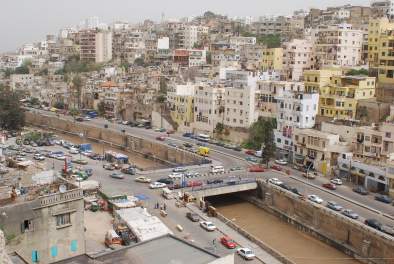The selected decision support system “Water Evaluation and Planning System (WEAP)”, allows building scenarios on current water accounts and exploring the impact of alternative assumptions or policies on future water availability and use. The scenarios are evaluated with regard to water sufficiency, costs and benefits, compatibility with environmental targets and sensitivity to uncertainty in key variables.
The availability of sufficient data is one of the preconditions for IWRM planning and the basis for the functioning of the WEAP system. To this purpose, MEW will collect available data from the relevant Lebanese institutions and these will be then incorporated in and processed through WEAP.
An important aspect of the exercise consists in creating ownership of water stakeholders through consultation, building a shared knowledge on the use and benefits of such a model. As a first step in this direction, a Consultation Event was organized on 6 April 2011 at the MEW, Beirut, to inform water institutions about the efforts undertaken and to show the benefits of putting in place a system like WEAP.
The event - opened by the Minister of Energy and Water, H.E Eng. Gebran Bassil - was organised by the General Directorate of Hydraulic and Electrical Resources and the General Directorate of Exploitation with the technical and financial support of the MED EUWI Service Contract and of the GWP-Med/MED EUWI Secretariat. It involved the participation of representatives of the MEW and of the four Regional Water Establishments (Water Establishment of Beirut and Mount Lebanon, of North Lebanon of South Lebanon and of the Bekaa) and the Litani River Authority that dispose of some of the data needed to run WEAP.
The participatory and consultative approach will be extended to other Lebanese institutions keeping water-related data.
At the request of the Lebanese Government, relevant activities are designed and implemented in the framework of the so-called ‘MED EUWI Country Policy Dialogue on Integrated Water Resources Management’. It is technically and financially supported by Greece (Hellenic Ministry for Environment, Energy and Climate Change), the GEF Strategic Partnership for the Mediterranean Large Marine Ecosystems and via a MED EUWI Service Contract of the European Commission (EuropeAid, 2010-2012) led by Egis-BCEOM.

